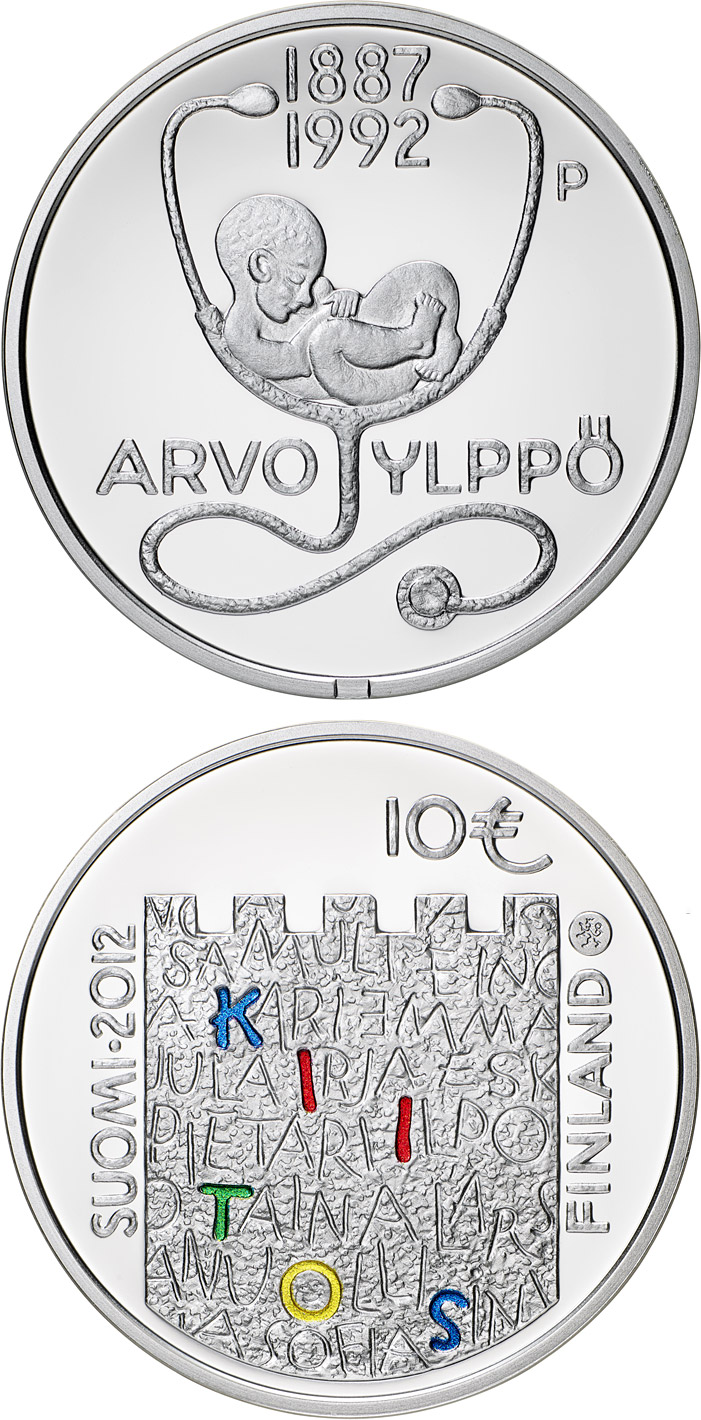10 euro - Arvo Ylppö and Medicin
Series: Finland - Silver 10 euro coins

With the authorisation of the Ministry of Finance, the Mint of Finland is publishing a commemorative coin to honour Arvo Ylppö. The coin celebrating the distinguished physician, who always worked for the future of families, reminds us of the importance of medicine and health care. The commemorative coin is made of silver, with a nominal value of 10 euros.
For Arvo Ylppö (1887–1992), children always came first. The coin commemorating Finnish health pays tribute to a persistent visionary, who understood the significance of freely and equally available health care.
A contest was held to select the design for the commemorative coin, and 12 proposals were received. The Collector Coin Committee chose the work submitted by sculptor Reijo Paavilainen as the winner. The design is heavy with symbolism and uses colour in an interesting and playful manner. The obverse depicts Lastenlinna (Children's Castle) hospital, where Arvo Ylppö worked for 43 years as chief physician. Ylppö spent his long life working for the welfare of the Finnish people. As a token of gratitude, the names of children inscribed on the coin spell the word "kiitos", "thank you" in Finnish.
Health care made Finland into a trendsetter
Arvo Ylppö is, without a doubt, one of the foremost builders of Finnish society. The distinguished physician was a ground-breaking scientist, father of the Finnish child health clinic system, and teacher of paediatricians. He is also fondly remembered for his own paediatric work. Infant mortality is one of the key global indicators of welfare. The reduction of infant mortality in Finland to the lowest in the world is one of the achievements in the field of health care, for which Ylppö made a decisive contribution.
Arvo Ylppö dedicated his life to helping children
Arvo Ylppö studied in Helsinki and Germany. On the basis of his German experiences, Ylppö started to develop the Finnish health care system and created the foundation for the child health clinic system that now spans the country. Ylppö also wrote popular guides for mothers, which was a new approach to improving child health at the time. In Ylppö's view, children also had the right to have fun, which contributed to the improvement of the rights of children and moulded our concept of a good childhood.
Ylppö was one of the founding members of the Mannerheim League for Child Welfare and held a professorship in paediatrics at the University of Helsinki for more than thirty years (1925–1957).
Arvo Ylppö had six children of his own, and he continued his paediatric work at his private practice to the age of 90.